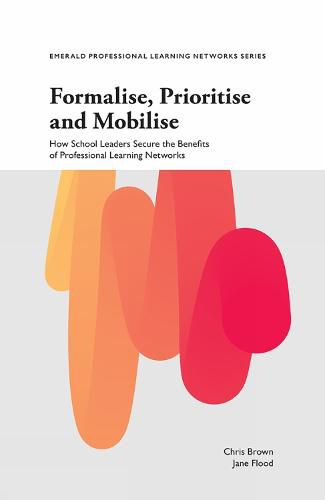Readings Newsletter
Become a Readings Member to make your shopping experience even easier.
Sign in or sign up for free!
You’re not far away from qualifying for FREE standard shipping within Australia
You’ve qualified for FREE standard shipping within Australia
The cart is loading…






Professional learning networks (PLN) of teachers and others (such as university researchers) collaborating outside of their everyday community of practice are considered to be an effective way to foster school improvement. At the same time, to generate change, PLNs require effective support from school leaders. Such support should be directed at ensuring those participating in PLNs can engage in network learning activities; also that this activity can be meaningfully mobilised within participant’s schools. What is less well understood however are the actions school leaders might engage in to provide this support.
To address this knowledge gap, this book presents a case study of how senior leaders attempted to maximise the effectiveness of participating in PLNs for one learning network: the New Forest Research Learning Network (RLN) - a specific type of PLN designed to facilitate research-informed change at scale. In-depth semi-structured interviews with RLN participants, as well as impact data and policy documents, have been used to ascertain the types of leadership practices employed and their nature (i.e. whether geared towards prioritising, formalising or mobilising the work of the PLN). Also presented is an assessment of the perceived effectiveness of these practices and suggestions for the type of leadership activity that appear to maximise the effectiveness of schools engaging in professional learning networks more generally.
$9.00 standard shipping within Australia
FREE standard shipping within Australia for orders over $100.00
Express & International shipping calculated at checkout
Professional learning networks (PLN) of teachers and others (such as university researchers) collaborating outside of their everyday community of practice are considered to be an effective way to foster school improvement. At the same time, to generate change, PLNs require effective support from school leaders. Such support should be directed at ensuring those participating in PLNs can engage in network learning activities; also that this activity can be meaningfully mobilised within participant’s schools. What is less well understood however are the actions school leaders might engage in to provide this support.
To address this knowledge gap, this book presents a case study of how senior leaders attempted to maximise the effectiveness of participating in PLNs for one learning network: the New Forest Research Learning Network (RLN) - a specific type of PLN designed to facilitate research-informed change at scale. In-depth semi-structured interviews with RLN participants, as well as impact data and policy documents, have been used to ascertain the types of leadership practices employed and their nature (i.e. whether geared towards prioritising, formalising or mobilising the work of the PLN). Also presented is an assessment of the perceived effectiveness of these practices and suggestions for the type of leadership activity that appear to maximise the effectiveness of schools engaging in professional learning networks more generally.